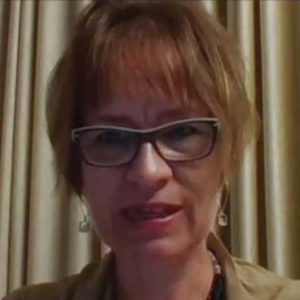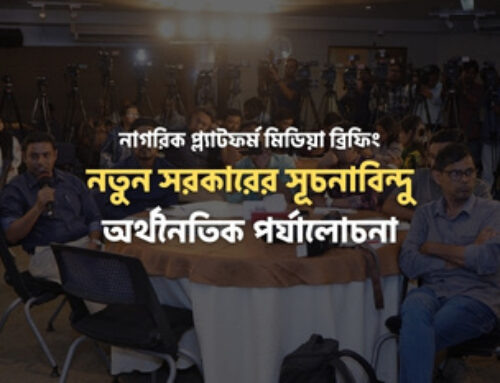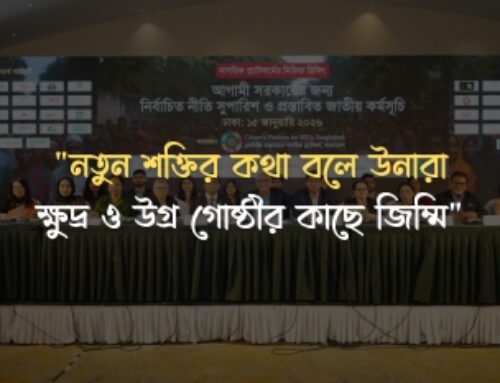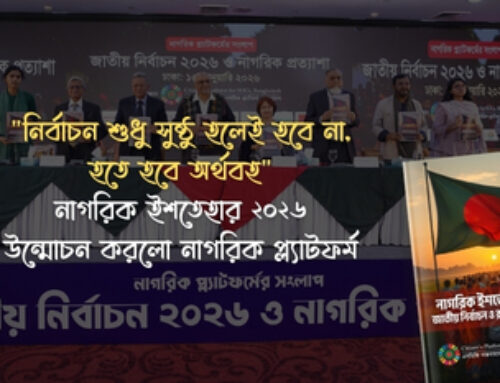httpv://www.youtube.com/watch?v=l1KUHAWvWYA
Voluntary National Review (VNR) is not just a report but a process. Five years of VNRs have been beneficial in view of meaningfully engaging stakeholders, providing important accountability and communication tools, monitoring Sustainable Development Goals (SDG) implementation while identifying gaps and integrating SDGs into national development plans. However, insufficient time and resources for more robust capacity building and inadequate data to monitor and evaluate progress are amongst few challenges that originate in the process. In the process of VNRs, empowerment of stakeholders is very essential but from what the VNR countries report, activities assigned to empower stakeholders are inadequate.
These insights were presented in a virtual special talk on “What have we learned after five years of Voluntary National Reviews?” organized by Citizen’s Platform for SDGs, Bangladesh on 28 September 2020. The event was live streamed on Facebook and Citizen’s Platform Website.
 Ms Irena Zubcevic, Chief of Intergovernmental Policy and Review Branch, Office of Intergovernmental Support and Coordination for Sustainable Development, UN Department of Economic and Social Affairs (DESA) made the keynote presentation. She mentioned about an encouraging increase in the percentage of the countries that included non-state actors (NSAs) in drafting VNRs from 9% in 2016 to 53% in 2019. She also presented a feedback on the VNRs from a 2019 High-level Political Forum (HLPF) questionnaire where out of 234 government and NSA stakeholders, people more or less agreed that VNRs have been useful for mobilizing partnerships, advancing national implementation and for sharing learned lessons, gained experiences and SDG implementation challenges. Meanwhile, a staggering majority strongly agreed to the need for more specific guidance on the preparation, content and approach to VNRs.
Ms Irena Zubcevic, Chief of Intergovernmental Policy and Review Branch, Office of Intergovernmental Support and Coordination for Sustainable Development, UN Department of Economic and Social Affairs (DESA) made the keynote presentation. She mentioned about an encouraging increase in the percentage of the countries that included non-state actors (NSAs) in drafting VNRs from 9% in 2016 to 53% in 2019. She also presented a feedback on the VNRs from a 2019 High-level Political Forum (HLPF) questionnaire where out of 234 government and NSA stakeholders, people more or less agreed that VNRs have been useful for mobilizing partnerships, advancing national implementation and for sharing learned lessons, gained experiences and SDG implementation challenges. Meanwhile, a staggering majority strongly agreed to the need for more specific guidance on the preparation, content and approach to VNRs.
On a national level, she recommended improvement by strengthening national ownership through capacity building, whole-of-government and whole-of-society approach while also strengthening monitoring and oversight. At the global level, improving overall quality of reports over time, focusing VNR presentation at HLPF on explanation of impact of policies and strategies and strengthening interactive session are some of the recommendations laid out for HLPF review.
 Mr Saber Hossain Chowdhury, MP, Chairman, Parliamentary Standing Committee on Ministry of Environment, Forest and Climate Change and Former President, Inter-Parliamentary Union (IPU), a special commentator in the talk, outlined that the VNR is a critical and essential instrument in achieving the SDGs. He emphasized on the importance of engagement with the citizens and in that process, the need for making accountability to them much more robust. While the VNR is an innovation, maximizing the impacts of this new innovation is important, he said. VNRs have to be inclusive, participatory and driven by data. Engagement of VNRs with the parliamentarians is also quite low which poses a serious problem as resource allocation, policy articulation and coherence have to be taken up by them at the end of the day. Parliamentarians have to be a bridge between the government and Civil Society Organisations (CSOs), youth, private sector and volunteers.
Mr Saber Hossain Chowdhury, MP, Chairman, Parliamentary Standing Committee on Ministry of Environment, Forest and Climate Change and Former President, Inter-Parliamentary Union (IPU), a special commentator in the talk, outlined that the VNR is a critical and essential instrument in achieving the SDGs. He emphasized on the importance of engagement with the citizens and in that process, the need for making accountability to them much more robust. While the VNR is an innovation, maximizing the impacts of this new innovation is important, he said. VNRs have to be inclusive, participatory and driven by data. Engagement of VNRs with the parliamentarians is also quite low which poses a serious problem as resource allocation, policy articulation and coherence have to be taken up by them at the end of the day. Parliamentarians have to be a bridge between the government and Civil Society Organisations (CSOs), youth, private sector and volunteers.
 Ms Mia Seppo, UN Resident Coordinator in Bangladesh offered special comments. She mentioned that VNRs deserve a lot of credit for trying to strengthen country-efforts in order to create multi-stakeholder platforms. But she also critically pointed out that it needs to be ensured that these platforms are genuinely multi-stakeholder and that young people are giving voice through young people while the excluded groups are given voice to speak for themselves. It is important to link the global conversation and the national dialogue and make that relevant to the community level. She also mentioned the need to be really mindful about the fact that the digital transformation currently in place, more due to COVID-19, is the potential and already new face of inequality. She made a reference to the universal declaration of human rights and mentioned that human rights matter most in the smallest places. Therefore, it should be looked at if the VNRs are truly making a difference in people’s lives.
Ms Mia Seppo, UN Resident Coordinator in Bangladesh offered special comments. She mentioned that VNRs deserve a lot of credit for trying to strengthen country-efforts in order to create multi-stakeholder platforms. But she also critically pointed out that it needs to be ensured that these platforms are genuinely multi-stakeholder and that young people are giving voice through young people while the excluded groups are given voice to speak for themselves. It is important to link the global conversation and the national dialogue and make that relevant to the community level. She also mentioned the need to be really mindful about the fact that the digital transformation currently in place, more due to COVID-19, is the potential and already new face of inequality. She made a reference to the universal declaration of human rights and mentioned that human rights matter most in the smallest places. Therefore, it should be looked at if the VNRs are truly making a difference in people’s lives.
 The session was chaired by Dr Debapriya Bhattacharya, Convenor, Citizen’s Platform for SDGs, Bangladesh and Distinguished Fellow, Centre for Policy Dialogue (CPD). He raised concerns over what proportion of the countries which are engaging NSAs in drafting VNRs are from OECD countries and developing countries. For NSAs to be more involved in this VNR process, they need to demonstrate their capacity in it. He reiterated the need for accountability in the process of VNRs. Along with collaboration and consultation in VNRs, empowerment and localization are vital. He also raised concerns over the fact that there are VNRs for countries to account for but there is no platform where the global community will be held accountable.
The session was chaired by Dr Debapriya Bhattacharya, Convenor, Citizen’s Platform for SDGs, Bangladesh and Distinguished Fellow, Centre for Policy Dialogue (CPD). He raised concerns over what proportion of the countries which are engaging NSAs in drafting VNRs are from OECD countries and developing countries. For NSAs to be more involved in this VNR process, they need to demonstrate their capacity in it. He reiterated the need for accountability in the process of VNRs. Along with collaboration and consultation in VNRs, empowerment and localization are vital. He also raised concerns over the fact that there are VNRs for countries to account for but there is no platform where the global community will be held accountable.
Dr Rasheda K. Choudhury, Executive Director, Campaign for Popular Education (CAMPE), Dr. Manzoor Ahmed, Professor Emeritus, BRAC University, Dr Fahmida Khatun, Executive Director, CPD, Professor Mustafizur Rahman, Distinguished Fellow, CPD and Dr Khondaker Golam Moazzem, Research Director, CPD were also present.
The special talk ended with interactive Q&A sessions.




